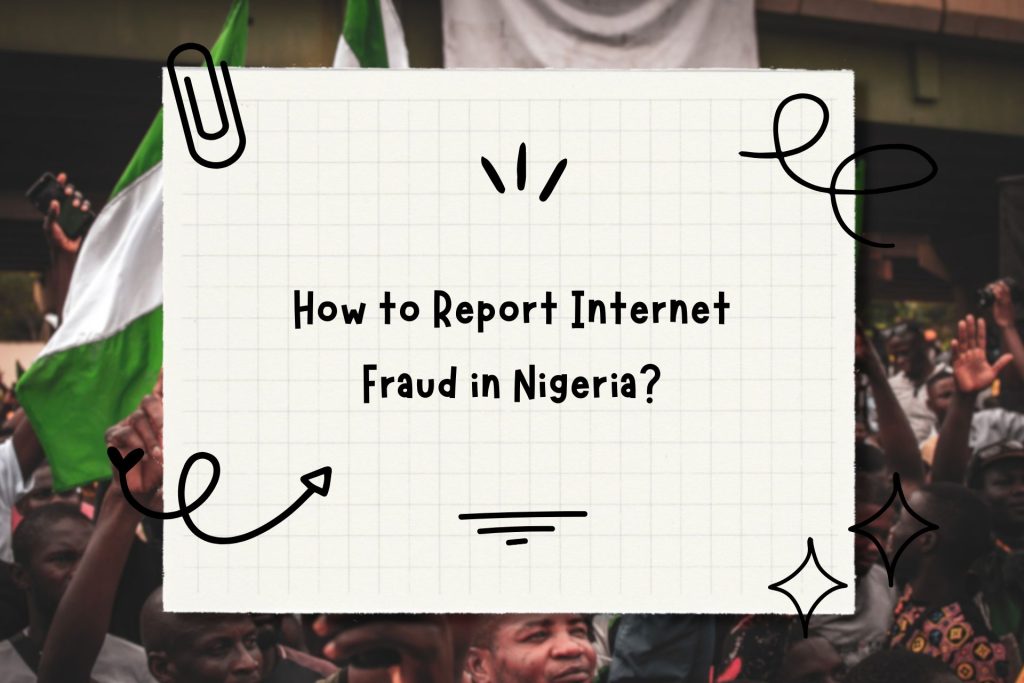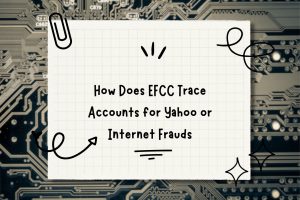If you live in Nigeria and have fallen victim to internet fraud, it is important to know how to report it. Internet fraud, also known as cybercrime, is a common problem in Nigeria.
According to the Nigerian Communications Commission, there were over 18,000 reported cases of cybercrime in Nigeria in 2020 alone. Reporting internet fraud is crucial in order to bring criminals to justice and prevent others from becoming victims.
If you find yourself caught in the web of internet fraud in Nigeria, the first move is to start building your case with solid evidence. Gather up every bit of communication you’ve had with the scammer – emails, and messages. Keep a tight grip on any receipts or transaction records that tie into the fraud.
Once you’ve got your evidence in hand, it’s time to bring in the big guns. In Nigeria, the Economic and Financial Crimes Commission (EFCC) is the go-to squad for sniffing out cybercrime and making sure the culprits face the music.
So, gear up and get ready to hand over your evidence to the EFCC – they’re the ones who can kick things into high gear and start turning the tables on those internet fraudsters.
What is internet fraud in Nigeria?

Internet fraud, also known as “419 scams” or “advanced fee fraud,” is a serious problem in Nigeria. These scams involve individuals or groups using the internet to deceive and defraud unsuspecting victims. The scams can take many forms, including fake job offers, lottery scams, and romance scams.
One common type of internet fraud in Nigeria is the “Nigerian prince” scam. This scam involves an email from someone claiming to be a Nigerian prince or government official who needs your help to transfer a large sum of money out of the country. In exchange for your assistance, the scammer promises to share a portion of the money with you.
Another type of internet fraud in Nigeria is the “419” scam. This scam involves a request for advance payment in exchange for a promised reward, such as a large sum of money or a valuable item. The scammer may ask for payment for things like taxes, legal fees, or customs duties. Once the victim pays the advance fee, the scammer disappears and the promised reward never materializes.
It is important to be aware of these scams and take steps to protect yourself from becoming a victim. Some tips for avoiding internet fraud include:
- Be wary of unsolicited emails or phone calls from strangers.
- Do not send money or personal information to someone you have never met in person.
- Be skeptical of offers that seem too good to be true.
- Use caution when sharing personal information online.
- Trust your instincts and if something seems suspicious, don’t hesitate to report it to the appropriate authorities.
Getting a handle on the different types of internet fraud that exist in Nigeria and taking steps to protect yourself, you can help prevent these scams from succeeding and keeping your wallet out of harm’s way.
Recommended articles
How to Report Internet Fraud in Nigeria?
- First things first, gather all the evidence you have, including emails, messages, and any communication with the fraudster.
- Keep hold of any receipts or transaction records related to the fraud.
- Report the fraud to the Economic and Financial Crimes Commission (EFCC), the authority responsible for investigating and prosecuting cases of cybercrime in Nigeria. They’re the ones with the know-how to tackle internet fraud head-on and bring the scammers to justice.
Official Reporting Channels
If you have fallen victim to internet fraud in Nigeria, it is important that you report the incident to the appropriate authorities. Here are the official reporting channels you can use:
Nigerian Police Force Cybercrime Units
The Nigerian Police Force (NPF) has set up cybercrime units in various states across the country to investigate and prosecute cybercrime cases. To report internet fraud to the NPF, you can visit the nearest police station or contact the cybercrime unit in your state. You can find a list of the cybercrime units and their contact details on the NPF website.
Economic and Financial Crimes Commission (EFCC)
The Economic and Financial Crimes Commission (EFCC) is the primary anti-corruption agency in Nigeria. The EFCC has a cybercrime unit that investigates and prosecutes cybercrime cases. To report internet fraud to the EFCC, you can visit any of their offices across the country or contact them via their website or social media handles.
Nigerian Computer Emergency Response Team (CERT)
The Nigerian Computer Emergency Response Team (CERT) is the national point of contact for cyber incidents in Nigeria. The CERT is responsible for coordinating and responding to cyber incidents in the country. To report internet fraud to the CERT, you can contact them via their website or email.
It is important to note that reporting internet fraud to these agencies can help in the fight against cybercrime in Nigeria. Always provide as much information as possible to aid their investigations.






